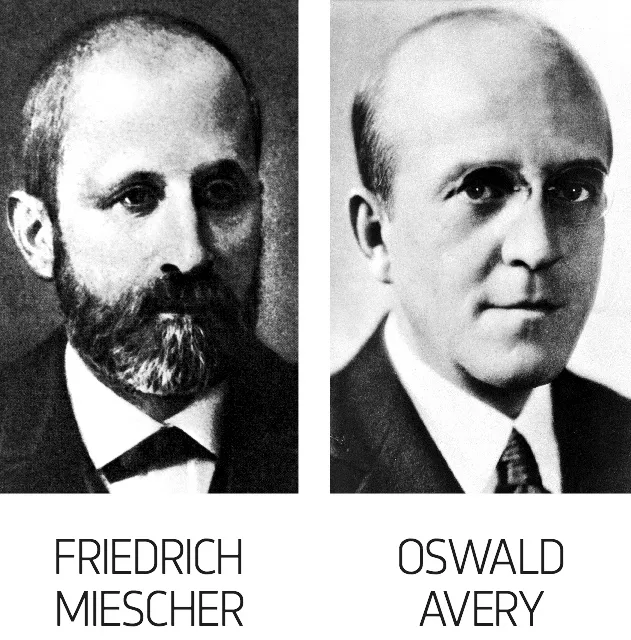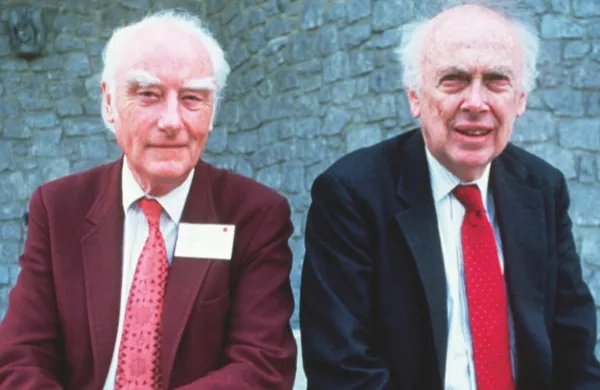Francis Crick and James Watson are most often associated with the famous genetic molecule, but their work in the 1950s came over 80 years after the identification of DNA by a Swiss physician searching for the ‘building blocks’ of life. Friedrich Miescher had focused on proteins in cells, but in 1869 he discovered a strange substance also lurking in the nuclei of the cells. He named it ‘nuclein’, and suspected it would prove at least as vital to cells as proteins.

Crick and Watson were not the first to show he was right, either. Their celebrated discovery of DNA’s double helix structure was prompted by key experiments by a team led by the American biochemist Oswald Avery. In 1944, working at the Rockefeller University in New York, they published the results of painstaking studies using bacteria that revealed that DNA passed genetic information from one organism to another.

This went against the accepted wisdom that proteins must be the carriers of genetic information, as DNA was ‘obviously’ too simple a molecule to perform so complex a role. Crick and Watson agreed with Avery – but his own claim to a Nobel was blocked by sceptics until the 1960s, by which time he was dead.
Read more:
Subscribe to BBC Focus magazine for fascinating new Q&As every month and follow @sciencefocusQA on Twitter for your daily dose of fun science facts.
